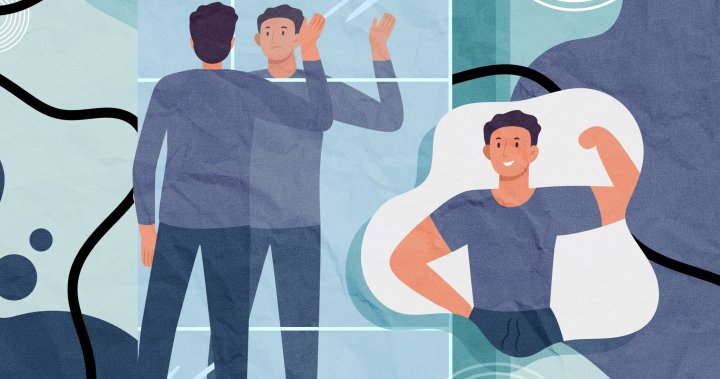
How these men are overcoming social media fuelled body image, mental health challenges
Global News
Body dysmorphic disorder results in people having negative thoughts about their bodies. Men can spend hours of their day analyzing their bodies, trying to make improvements.
Every time Abdullah Barez opens his Instagram and scrolls through his feed, he feels a sense of anxiety to improve his already-clean diet, or to go harder in the gym. Whatever he’s doing is just not enough.
“There’s this unrealistic expectation of having this six-pack, washboard abs and whatnot. Even a part of me wants it and social media kind of echoes me to have that,” he said.
Social media’s impact on how Barez feels about himself is not unique.
A 2020 study done by a researcher at Allegheny College in Pennsylvania found men who were exposed to muscular figures on Instagram immediately experienced “lower appearance satisfaction, weight satisfaction, and more social comparison compared to the neutral images.”
Barez admits to having been obsessed with how his body looked and while he has not been diagnosed, he thinks he checked off all the boxes for body dysmorphia.
Body dysmorphic disorder is a mental health problem that results in people having negative thoughts about their bodies and spending hours analyzing their bodies, trying to make improvements.
“The average man is comparing himself to a hyper-muscular, very lean body type and is going to make him feel worse about his own body because he does not live up to that ideal,” said Jennifer Mills, an associate professor of clinical psychology at York University said of the condition.
“That ideal could be incredibly unattainable for the average person, it requires a ton of time and discipline and access to exercise and nutrition that most men don’t have.”











